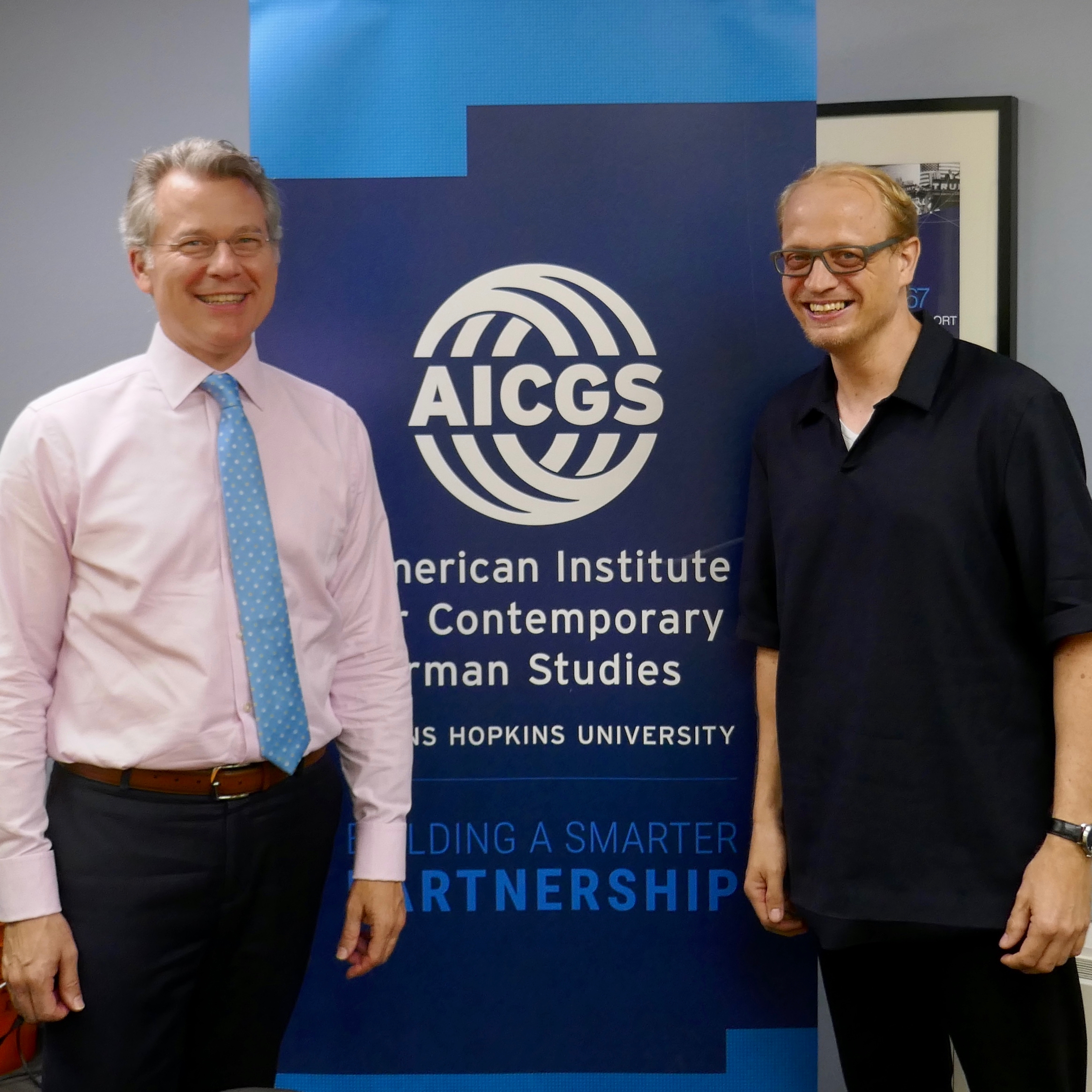Episode 12: Memorializing Afghanistan: German and American Experiences

Axel Heck
Kiel University
Dr. Axel Heck is a DAAD/AICGS Research Fellow from May to mid-July 2019. He is a senior lecturer in International Relations at Kiel University in Germany. Prior to his appointment in Kiel, Dr. Heck was a post-doctoral researcher at the University of Freiburg, research associate at the University of Mainz, and lecturer at the University of Frankfurt. He received a graduate fellowship from the Konrad-Adenauer-Foundation for his PhD and he was a visiting fellow at the Center for Transatlantic Relations at Johns Hopkins University (SAIS) in Washington, DC. Dr. Heck is the author of Macht als soziale Praxis: Die Herausbildung des transatlantischen Machtverhältnisses im Krisenjahr 1989 (Power as social practice: the formation of the transatlantic relationship in the crisis of 1989) on power in transatlantic relations and several articles on representations of war in media, culture, and society.
During his fellowship at AICGS, Dr. Heck will compare collective memory formation regarding the Afghanistan war in Germany and the United States.

Jeff Rathke
President of AGI
Jeffrey Rathke is the President of the American-German Institute in Washington, DC.
Prior to joining AGI, Jeff was a senior fellow and deputy director of the Europe Program at CSIS, where his work focused on transatlantic relations and U.S. security and defense policy. Jeff joined CSIS in 2015 from the State Department, after a 24-year career as a Foreign Service Officer, dedicated primarily to U.S. relations with Europe. He was director of the State Department Press Office from 2014 to 2015, briefing the State Department press corps and managing the Department's engagement with U.S. print and electronic media. Jeff led the political section of the U.S. Embassy in Kuala Lumpur from 2011 to 2014. Prior to that, he was deputy chief of staff to the NATO Secretary General in Brussels. He also served in Berlin as minister-counselor for political affairs (2006–2009), his second tour of duty in Germany. His Washington assignments have included deputy director of the Office of European Security and Political Affairs and duty officer in the White House Situation Room and State Department Operations Center.
Mr. Rathke was a Weinberg Fellow at Princeton University (2003–2004), winning the Master’s in Public Policy Prize. He also served at U.S. Embassies in Dublin, Moscow, and Riga, which he helped open after the collapse of the Soviet Union. Mr. Rathke has been awarded national honors by Estonia, Latvia, and Lithuania, as well as several State Department awards. He holds an MPP degree from Princeton University and BA and BS degrees from Cornell University. He speaks German, Russian, and Latvian.
__
 The United States, along with Germany and many U.S. allies, have been at war in Afghanistan for 18 years. It is the longest-running military operation in either country’s history and has had dramatic impacts on both the United States and Germany.
The United States, along with Germany and many U.S. allies, have been at war in Afghanistan for 18 years. It is the longest-running military operation in either country’s history and has had dramatic impacts on both the United States and Germany.
The war has created a legacy in both countries. The U.S. is accustomed to using force in extreme circumstances to confront security threats and challenges. It has an abundant infrastructure that addresses some of the consequences of the conflict and memorializes it in the public consciousness: federal programs to care for and support veterans; public recognition through military recognitions and awards; and most recently, legislation to build a “Global War on Terrorism Memorial.” At the same time, public support for the ongoing U.S. deployment in Afghanistan is waning. Some refer to Afghanistan and Iraq as “forever wars,” which encapsulates the problem: there are limits to what U.S. power can achieve. Regardless of those doubts, the U.S. public is overwhelmingly supportive of the troops deployed abroad, regardless of how individual Americans feel about that military action.
For Germany, sending troops to Afghanistan is a development unique in its postwar history. The country is not used to sending large numbers of soldiers into situations where there may be combat or loss of life. How German society and politics understands and memorializes these actions is also a new challenge, given a general public reluctance to support interventions abroad. In Germany’s political system, leaders have repeatedly had to justify the country’s involvement in military operations.
How does Germany memorialize its experience in Afghanistan? What does that memory say about German society, its media, and the political system? On this episode of The Zeitgeist, Jeff Rathke talks with Dr. Axel Heck about how the conflict has shaped political discourse in Germany and the lasting impact it will have.
Host
Jeff Rathke, President, AGI
Guest
Axel Heck, DAAD/AGI Research Fellow and senior lecturer in International Relations at Kiel University





